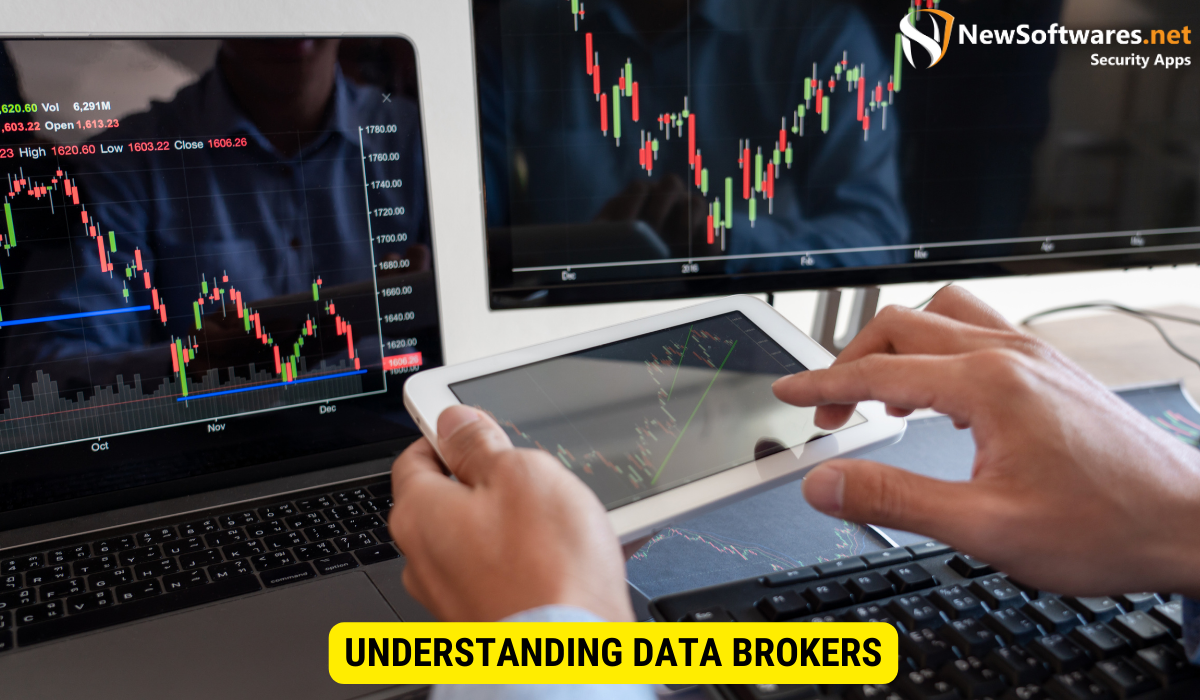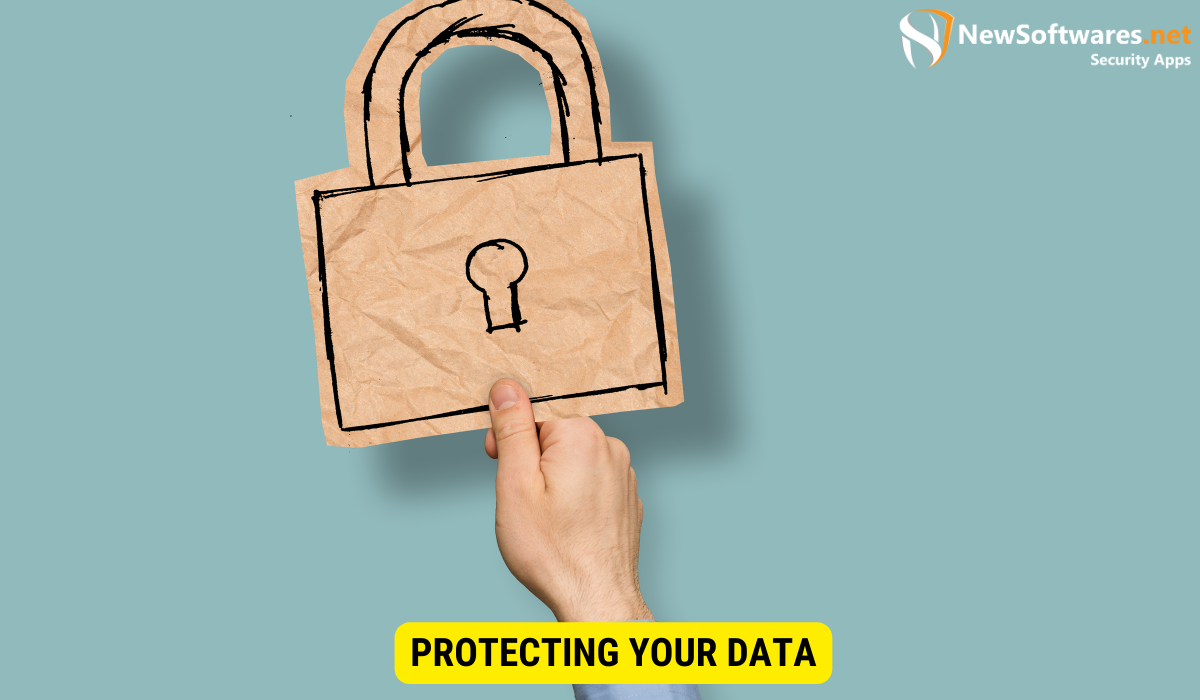In today’s digital age, privacy concerns have become increasingly prevalent. With data brokers like Infofree playing a significant role in the economy, it is essential to understand the implications they pose. My aim is to explore the world of data brokers, specifically focusing on Infofree, and examine the potential risks associated with their operations. Additionally, we will delve into the legal and ethical implications of data brokerage and discuss steps individuals can take to protect their personal information in this evolving landscape.
Understanding Data Brokers

Data brokers, as the name suggests, are entities that collect, analyze, and sell large volumes of personal data. This data can include a wide range of information, such as demographic details, online behavior, purchasing habits, and more. By compiling and organizing these vast datasets, data brokers create valuable consumer profiles that businesses and organizations can use for marketing, decision-making, and targeted advertising.
Data brokers have become an integral part of the digital landscape, operating behind the scenes to fuel the data-driven economy. Their role goes beyond simply collecting and selling data; they act as intermediaries, connecting businesses with the information they need to make informed decisions and create personalized experiences for their customers.
What are Data Brokers?
Data brokers are middlemen who acquire data from various sources, including public records, surveys, social media, and online tracking mechanisms. They cast a wide net, capturing data from multiple touchpoints in consumers’ lives. From the moment a person fills out a survey to the time they make a purchase online, data brokers are silently gathering information, building a comprehensive picture of their behaviors, preferences, and characteristics.
These data sources are diverse and abundant. Public records provide data on individuals’ addresses, property ownership, and even criminal records. Surveys offer insights into consumers’ opinions, interests, and lifestyle choices. Social media platforms provide a treasure trove of personal information, from likes and shares to photos and comments. Online tracking mechanisms, such as cookies and pixels, track users’ online activities, enabling data brokers to understand their browsing habits, search history, and interactions with advertisements.
Once data brokers have collected this information, they employ sophisticated algorithms and analytical tools to process and analyze the data. This allows them to identify patterns, correlations, and trends, transforming raw data into actionable insights. These insights are then packaged into consumer profiles, which are sold to businesses and organizations seeking to understand their target audience better and tailor their marketing strategies accordingly.
The Role of Data Brokers in the Digital Economy
Data brokers play a crucial role in the digital economy. Their extensive datasets and analytical capabilities help businesses gain a competitive advantage by targeting their marketing efforts more effectively. By leveraging consumer profiles created by data brokers, businesses can identify their ideal customers, understand their needs and preferences, and craft personalized marketing messages that resonate with them.
Moreover, data brokers facilitate the seamless exchange of information between organizations, enabling better decision-making and fostering innovation across industries. For example, a healthcare provider can leverage data broker services to gain insights into patient demographics, health conditions, and treatment outcomes. This information can then be used to improve patient care, optimize resource allocation, and drive medical research.
However, the use of data brokers also raises concerns about privacy and data protection. As data brokers collect and analyze vast amounts of personal information, there is a need for robust regulations and safeguards to ensure that individuals’ privacy rights are respected. Striking the right balance between data-driven innovation and protecting consumer privacy is an ongoing challenge that requires collaboration between data brokers, businesses, policymakers, and consumers.
In conclusion, data brokers are key players in the digital economy, enabling businesses to harness the power of data to drive growth and innovation. Their ability to collect, analyze, and sell vast amounts of personal information provides valuable insights that businesses can use to understand their customers better and deliver more personalized experiences. However, as the industry continues to evolve, it is crucial to address privacy concerns and ensure that data is used ethically and responsibly.
The Business Model of Infofree
One prominent player in the data broker industry is Infofree, which offers a range of services centered around data collection, organization, and distribution. Understanding how Infofree operates can shed light on the practices common in the field of data brokerage.
How Infofree Operates
Infofree primarily collects data from various sources, including public records, surveys, and partnerships with other organizations. The data is then cleansed, updated, and categorized before being transformed into valuable consumer profiles. Infofree’s subscription-based business model allows users to access these profiles through its online platform, providing businesses with comprehensive data-driven insights to support their marketing efforts.
Infofree’s Data Collection and Usage
Infofree collects data from a wide range of sources, which includes both publicly available and proprietary databases. The information gathered can encompass demographic details, contact information, employment history, purchasing behavior, and more. While Infofree ensures compliance with relevant data protection regulations, concerns have been raised about the transparency of the data collection process and the accuracy of the information provided.
Privacy Concerns Associated with Data Brokers
Although data brokers offer benefits to businesses and organizations, privacy concerns abound in this industry. It is crucial to examine these concerns and understand the potential risks associated with the trading of personal data.
Potential Risks of Personal Data Trading
One of the primary risks associated with personal data trading is the potential for data breaches and unauthorized access to sensitive information. With large volumes of personal data being bought and sold, there is an increased likelihood of unauthorized third parties gaining access to this data, potentially leading to identity theft, fraud, and other malicious activities.
Additionally, the ability to combine and cross-reference datasets from various sources can result in highly detailed profiles that infringe on individuals’ privacy. The extensive tracking and profiling enabled by data brokers raise concerns about the erosion of personal autonomy and the potential for manipulation and discrimination based on personal traits and characteristics.
The Debate Over Data Privacy
The rise of data brokers has sparked a heated debate over data privacy and the balance between corporate interests and individual rights. Critics argue that individuals often have little to no control over the information collected and sold by data brokers, leading to a lack of transparency and limited consent. On the other hand, proponents argue that data brokerage fuels innovation, paves the way for personalized experiences, and can have economic benefits for businesses and consumers.
Legal and Ethical Implications
The rapid evolution of data brokerage has raised concerns about the legal and ethical boundaries that should govern this industry. It is essential to consider the existing laws regulating data brokers and the ethical dilemmas associated with their operations.
Current Laws Regulating Data Brokers
Various countries and regions have implemented data protection laws to safeguard individuals’ privacy rights, such as the European Union’s General Data Protection Regulation (GDPR) and the California Consumer Privacy Act (CCPA). These regulations impose strict obligations on data brokers, ensuring transparency, and granting individuals certain rights over their personal data.
Ethical Dilemmas in Data Brokerage
Data brokerage presents complex ethical dilemmas that deserve attention. The collection and sale of personal data raise questions about consent, fairness, and the potential for discrimination. Additionally, the lack of transparency and control over the use of personal information can undermine individuals’ autonomy and erode trust in the digital ecosystem.
Protecting Your Data

In a landscape where personal data is increasingly valuable, safeguarding your information is paramount. Adopting proactive measures to protect your data can mitigate potential risks and enhance your control over your digital presence.
Steps to Safeguard Personal Information
- Regularly review privacy settings on social media platforms and online accounts to ensure they align with your preferences.
- Limit the amount of personal information you share online and be cautious about the information you provide when engaging with online services.
- Use secure and unique passwords for each online account and consider using two-factor authentication for added security.
- Be selective when granting permissions to third-party apps and services, as they may access and collect your personal data.
- Stay informed about relevant data protection regulations and exercise your rights, such as the right to access, rectify, or delete your personal data when applicable.
The Future of Data Privacy
The future of data privacy lies in a delicate balance between innovation, convenience, and individuals’ rights. As technology continues to advance and data becomes an increasingly valuable asset, it is incumbent upon governments, organizations, and individuals to work together to establish robust frameworks that protect privacy while fostering innovation and ensuring responsible data practices.
Key Takeaways
- Data brokers like Infofree collect, analyze, and sell personal information to businesses and organizations.
- Data brokerage raises concerns about privacy, data breaches, and the potential for manipulation and discrimination.
- Existing regulations, such as the GDPR and CCPA, provide some protection, but ethical dilemmas persist.
- Individuals can protect their data by reviewing privacy settings, limiting online sharing, and staying informed about regulations.
- The future of data privacy requires a careful balance between innovation and individual rights.
FAQs
Q: Are data brokers legal?
A: Yes, data brokers operate within existing legal frameworks and comply with data protection regulations. However, concerns remain regarding transparency and individuals’ control over their personal information.
Q: Can data brokers sell my personal data without my consent?
A: Data brokers typically obtain data from various sources and may not always require explicit consent from individuals. This lack of control over personal data is a key area of concern in the data brokerage industry.
Q: How can I opt out of data broker databases?
A: Some data brokers provide opt-out mechanisms, allowing individuals to request the removal of their personal data from their databases. However, achieving complete opt-out across all data brokers can be challenging, given the numerous entities in this industry.
Q: Do data brokers only collect personal data?
A: While personal data is a significant component of data brokerage, data brokers may also gather other types of information, such as purchase behavior, social media activity, and demographic details, to create comprehensive consumer profiles.
Q: Is it possible to entirely protect my data from data brokers?
A: Complete protection from data brokers is challenging, given their various sources of data and continuous collection. However, following privacy best practices, being cautious online, and staying informed about data protection can help mitigate potential risks.
Conclusion
Data brokers like Infofree play a fundamental role in the digital economy, bridging the gap between businesses and consumers. However, concerns over privacy, transparency, and control of personal information persist. As individuals become more aware of the potential risks associated with data brokerage, it is crucial to actively protect personal data and engage in discussions surrounding ethics and regulation. By striking the right balance between innovation and privacy, we can ensure a digital landscape that respects individuals’ rights while enabling responsible data-driven practices.
